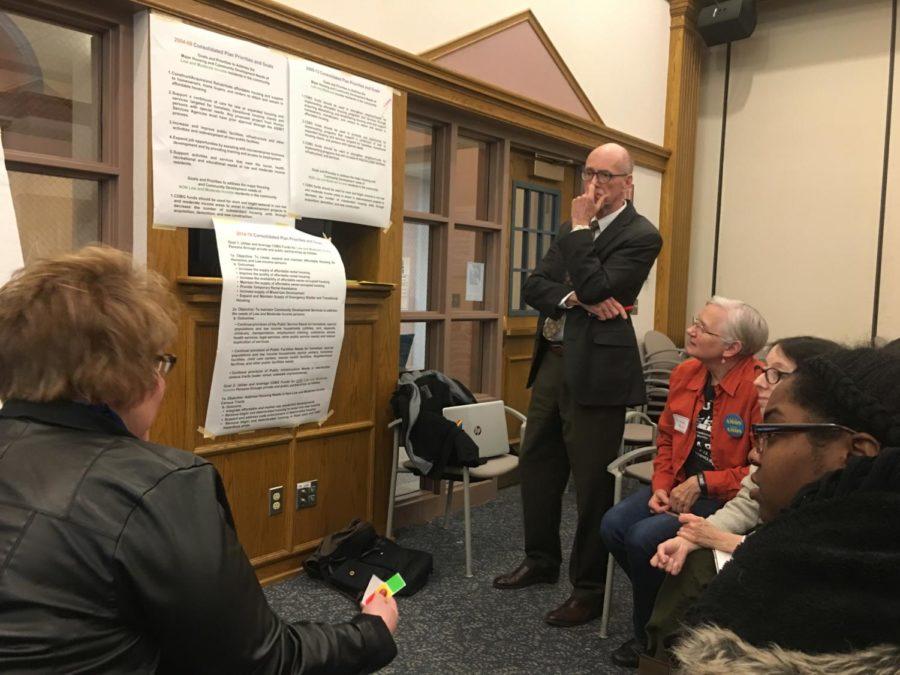City council: Housing for low-income and homeless populations viewed as priority by community
December 4, 2018
Ames is set to receive another round of federal funding for community housing developments, and residents came to the Ames City Council chambers Tuesday night to discuss how they believe that funding should be spent.
Nearly 30 residents participated in the meeting, which was made up of different group workshops overseen by a council member. Afterwards, the council convened to compare what their groups discussed. Providing housing to homeless, mentally ill and low-income populations was a top concern.
The grant money for these developments comes from two different programs: The Community Development Block Program (CDBG) and the Home Investment Partnerships Program (HOME). Ames began receiving CDBG funds in 2004, but this is the first year that the city is eligible for HOME spending.
Tuesday’s public forum was only the first in a continuing process to develop a five-year consolidation plan. Money from these funds can be used to create renter affordability programs, provide transportation assistance, buy land and convert it to home owning infrastructure and help low-to-middle income people and families (LMI) make down payments on homes.
“I think it went really well,” said Vanessa Baker-Latimer, the city planning housing coordinator. “We really appreciate the turnout. This really was the goal of the public forum.”
Representatives from a variety of organizations made an appearance, including the Story County Community Housing Corporation (SCCHC), Youth Social Services, Story County Housing Trust Fund (SCHTF) and AMOS (A Mid-Iowa Organizing Strategy).
“It was really good to get here and see there was an opportunity to dialogue,” said Brenda Dryer, an Scott County Housing Trust Fund member. “I’ve been to these kinds of meetings in other cities, and sometimes nobody shows up.”
Dryer is also the director of workforce solutions for the Ames Chamber of Commerce. She’s lived in Ames for just over 18 months.
Some attendees were part of multiple organizations. Trish Stauble is involved in AMOS and SCCHC, and she’s been involved with LMI home funding for more than 40 years.
“It’s a very bureaucratic process, so it can be hard for the public and non-profits to stay involved,” Stauble said. “We’re very concerned about mental health and homelessness, and it’s our job to make sure the public can be active about how this funding is being used.”
The workshops discussed the goals of different five-year consolidation plans since 2004 and voted on the ones that were most important to them. The groups overwhelmingly supported plans to improve the quantity and quality of affordable rental housing, as well as housing developments for homeless and special needs peoples.
“Our group talked a lot about increased housing for homeless people with mental health needs,” said Ward Four Rep. Chris Nelson. “We also discussed programs to help LMI peoples avoid eviction.”
More public forums are to come, but the date when that will happen is still unknown. Baker-Latimer still needs to acquire data and funds before the next forum so the public can go into greater depth about the consolidation plan. She said she would notify the press and different nonprofits once she decided on a date, and she would post the information on the city’s website.







